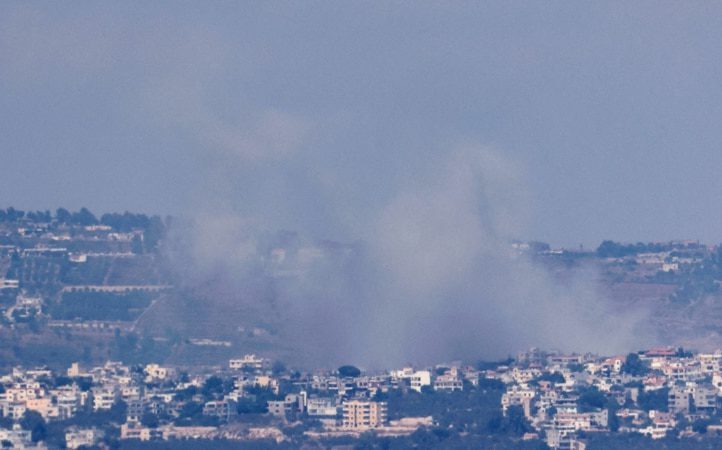BTN News: Tensions in the Middle East continue to escalate as Israel and Hezbollah engage in a series of cross-border attacks, raising concerns about a broader regional conflict. On Tuesday, Israeli forces conducted airstrikes in southern Lebanon, specifically targeting the Nabatiye area, which resulted in the deaths of four individuals, according to Lebanese health officials. The Israeli military stated that the strikes were aimed at Hezbollah militants. Meanwhile, Hezbollah, the Iranian-backed militant group, retaliated by launching a drone attack against Israel.
These recent skirmishes are part of a larger pattern of cross-border conflicts that have intensified since the onset of the war between Israel and Hamas in Gaza. The growing hostilities have alarmed the international community, which is urgently working to prevent a wider escalation that could engulf the region in a much larger conflict.
The situation grew even more concerning last week after Israel conducted a high-profile assassination in Beirut, killing a senior Hezbollah commander. On the same day, another attack in Tehran claimed the life of Hamas’ political leader, a strike that Iran and Hamas have attributed to Israel. These incidents have further inflamed tensions, drawing sharp warnings from global leaders.
Josep Borrell, the European Union’s foreign policy chief, expressed deep concern over the rapidly deteriorating situation in the region. “Tensions are continuing to rise in the Middle East, bringing the region to the brink of an unprecedented war,” Borrell stated on Tuesday. He emphasized the need for immediate action to prevent a “catastrophe,” urging an immediate ceasefire in Gaza as the first step toward de-escalation.
The conflict’s impact has extended beyond the Middle East, with countries like South Korea issuing travel warnings for the region. South Korea advised its citizens to leave Israel and Lebanon as soon as possible, reflecting the growing fear of a broader conflict.
In a related development, U.S. Secretary of Defense Lloyd Austin and Israeli Defense Minister Yoav Gallant held discussions on Monday, focusing on the escalating threats in the region. Austin reaffirmed the United States’ “unwavering commitment to Israel’s security” amid the rising threats from Iran and its allied groups, including Hezbollah. The Pentagon highlighted that both defense leaders agreed that a recent attack by an Iran-aligned militia on U.S. forces in western Iraq marked a “dangerous escalation,” underscoring Iran’s destabilizing role in the region.
A U.S. defense official, speaking to VOA, confirmed that the attack in Iraq injured several American personnel, further complicating the already volatile situation.
Simultaneously, the Israeli military continues its operations in the Gaza Strip, with forces conducting operations in the central and southern parts of the territory. Israeli aircraft also carried out an airstrike in the Jenin area of the occupied West Bank, an area known for frequent clashes. Palestinian health officials reported that this strike killed four people, adding to the rising death toll. In another incident, an Israeli raid in the West Bank village of Aqaaba resulted in the deaths of four more individuals.
Israel’s ongoing military campaign is in retaliation for the deadly October 7 attack by Hamas, which claimed the lives of 1,200 people and led to the capture of 250 hostages. In response, Israel has vowed to dismantle Hamas, leading to a devastating counteroffensive in Gaza. The Ministry of Health in Gaza reports that at least 39,650 people have been killed since the start of the Israeli military actions, with the majority of the casualties being women and children. Israel, however, contends that many of those killed were Hamas militants targeted in their operations.
As the violence escalates, the international community remains on high alert, fearing that the ongoing conflict could spiral into a broader war with far-reaching consequences. Efforts to broker a ceasefire and prevent further bloodshed are urgently needed to avert a humanitarian disaster and restore some semblance of stability to the region.


